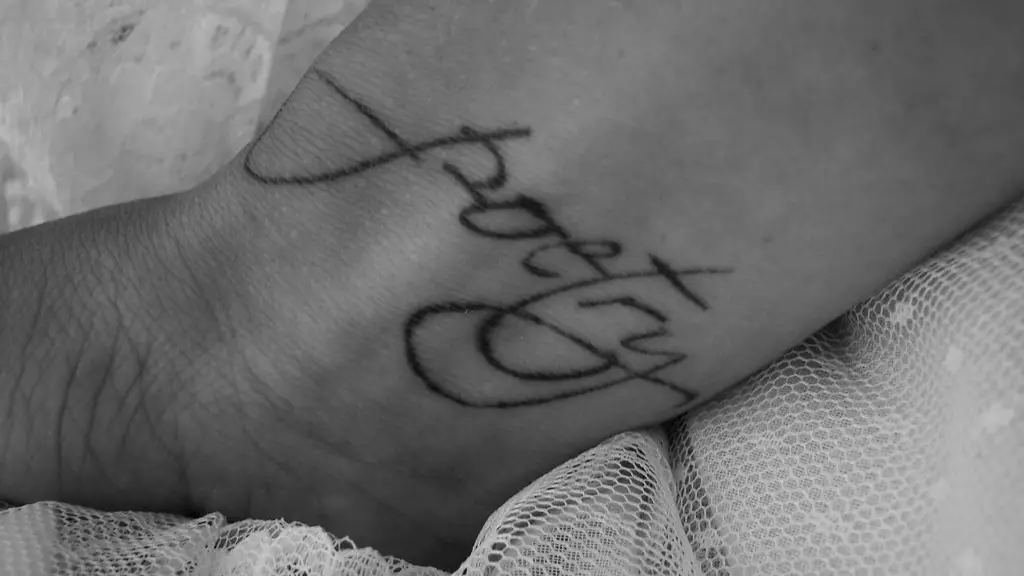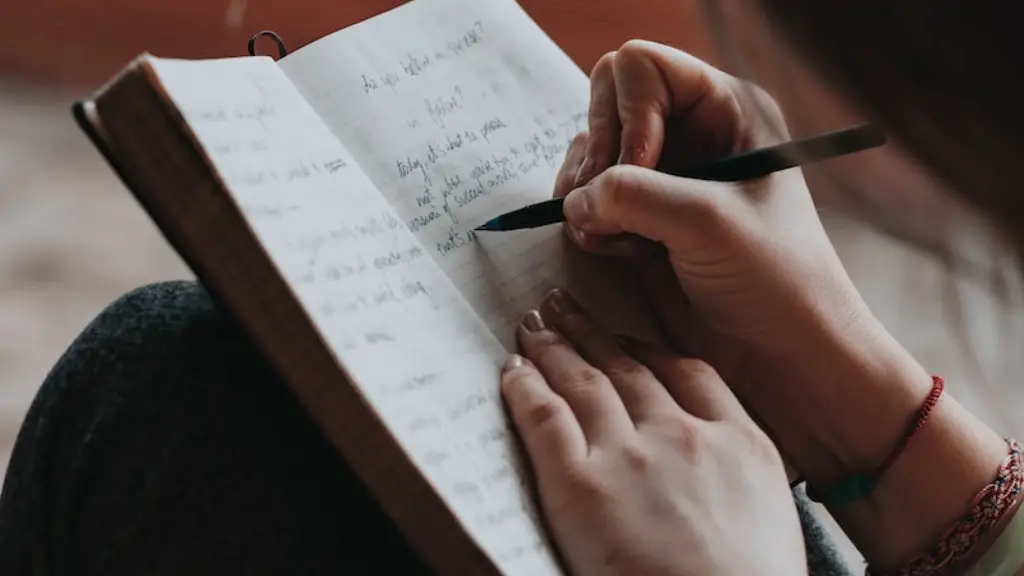Historical Context
Lyric poetry is a centuries-old form of expression and can be found as far back as Ancient Greece. It was a way for poets of the time to express their emotions, thoughts and ideas, often exploring deeper themes such as love, loss, power and identity. In the Romantic period, it was used as a tool for exploring philosophy, psychology and the inner workings of society. This experimentation and exploration continued throughout the Victorian and Modernist movements, with lyric poetry becoming a vehicle for conveying deeper meanings, sensibilities and social concerns.
Defining Lyric Poetry
At its core, lyric poetry is a type of poetry that expresses personal emotions, feelings, and experiences. It is often written in the first person and often provides readers with a glimpse into the emotions and inner thoughts of the poet. The emotions expressed can be joyful, sorrowful, passionate, or even whimsical. Lyric poetry is typically structured around a theme and often combines imaginative language, metaphor and imagery. Its goal is to evoke an emotional response from the reader.
Style and Structure
Lyric poetry usually follows a particular stylistic pattern or structure, though it can vary widely. It is often composed in couplets or rhyming lines, but can also be written in free verse. The length of the poem can vary depending on the poet, though traditionally it is quite short. In classical lyric poems, the lines often follow a set metre, such as iambic pentameter.
Function and Role
At its core, lyric poetry is designed to evoke an emotional response from the reader. Poets may use lyric poetry to explore personal themes such as grief, happiness, love and loss. These themes can be explored through imaginative language, metaphor and imagery, which allow the poet to express complex ideas in a concise way.
Influence and Legacy
Lyric poetry is incredibly influential and has been an integral part of the poetic tradition for centuries. It has been used as a tool for expressing emotions, exploring philosophy and psychology, and conveying deep ideas and sensibilities. Many of the renowned poets of the past, such as Robert Frost, William Wordsworth, and Emily Dickinson, were lyric poets. These poets were able to use lyric poetry to convey powerful and complex messages.
Lyric Poetry in Popular Culture
Lyric poetry has also had a strong influence on popular culture. It has been used in songwriting, storytelling, and even in the form of spoken-word poetry and rap. Throughout the years, lyric poetry has been used to express a wide range of emotions and ideas, from intense political commentaries to lighthearted love stories.
Function as a Tool for Expression and Activism
Lyric poetry is often used as a tool for expression, as well as for activism. Many poets use lyric poetry as a forum for making social, political, and cultural statements. It has been used to give voice to the voiceless and to challenge oppressive structures and social norms.
Challenge to Produce Meaningful Content
Writing effective lyric poetry is a challenge for any poet. To produce meaningful and powerful content, a poet needs to be able to express complex emotions and ideas in a succinct and effective way. This requires creativity, skill and precision.
Modern Forms of Lyric Poetry
Modern lyric poetry is much more expansive than it was in the past. From spoken word to rap and hip-hop, there are a variety of different forms and styles in which lyric poetry can be expressed. The internet has also had a major impact on lyric poetry, making it easier than ever to share and promote poetry online.
Benefits of Writing and Appreciating Lyric Poetry
Writing lyric poetry can be a cathartic and transformative experience. It can also be a great way to improve one’s language, story-telling, and writing skills. Appreciating lyric poetry can also be incredibly rewarding, as it can open readers up to different perspectives and meanings.
Using Lyric Poetry as a Form of Artistic Expression
At the end of the day, lyric poetry is an important form of artistic expression and communication. It is a powerful way to express emotions, explore themes, and challenge oppressive structures and norms. By engaging with lyric poetry, poets and readers alike can benefit from its potent insight and possibilities for artistic, emotional, and intellectual growth.


